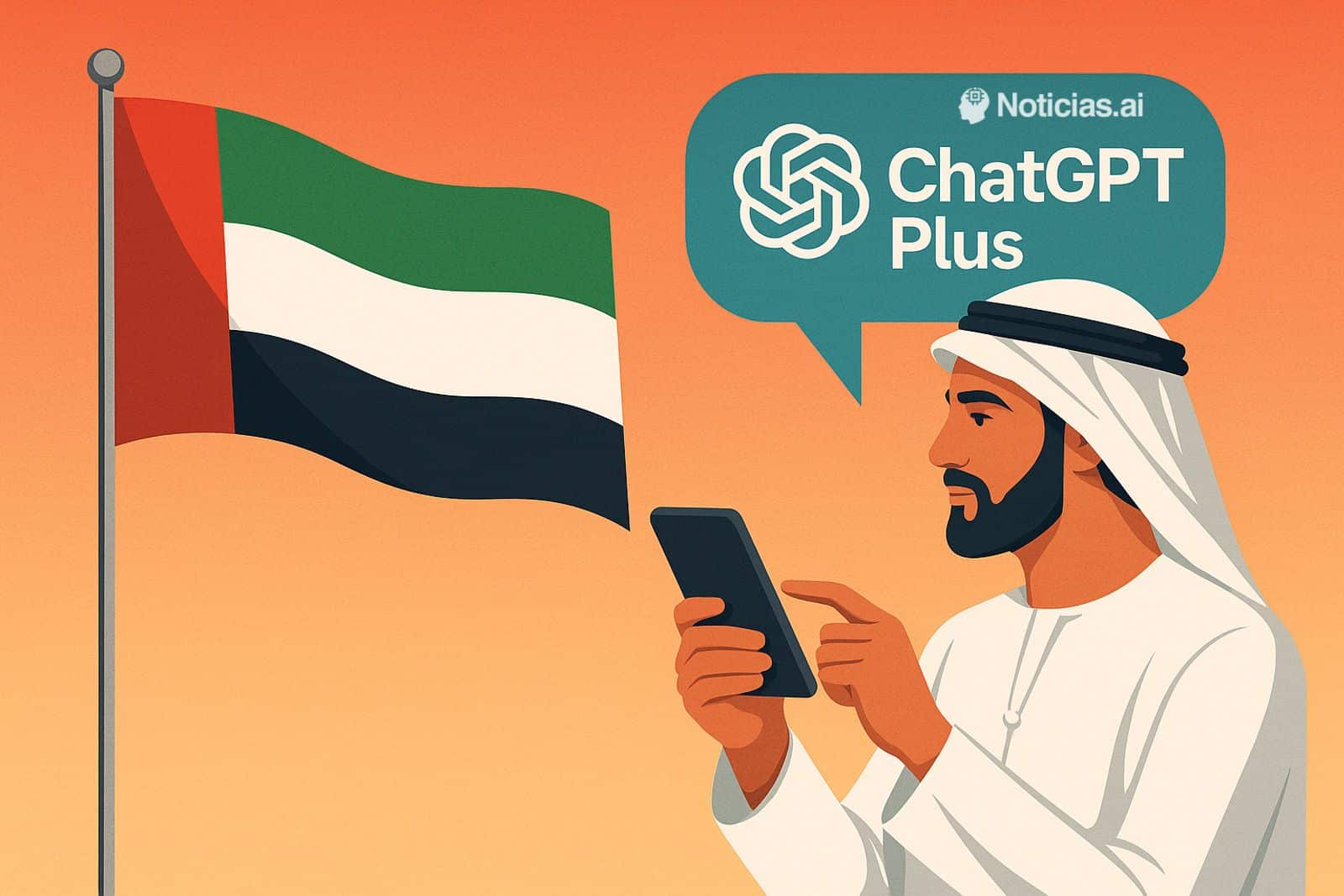The first nation in the world to provide free access to advanced artificial intelligence aims to establish itself as a leader in digital innovation and social transformation.
In a move that solidifies its technological ambitions, the United Arab Emirates (UAE) has become the first country in the world to offer free access to ChatGPT Plus, the advanced version of the popular AI assistant developed by OpenAI, to all its citizens and residents without distinction.
Announced on May 25, 2025, the initiative represents a bold step in the national digitalization strategy and aims to encourage the everyday, ethical, and productive use of artificial intelligence in key sectors such as education, public administration, entrepreneurship, and research.
Universal Access to GPT-4 as State Policy
ChatGPT Plus, based on the GPT-4 architecture, offers users a significantly enhanced experience compared to the free version: faster responses, greater reasoning capabilities, and access to more robust features. Typically, this subscription costs $20 per month in many countries, but in the UAE, it will be completely free, thanks to an institutional agreement funded by the government itself.
This initiative reinforces the country’s commitment to its national AI strategy, aligning with its Vision 2031 to become a global hub for emerging technologies.
Education, Productivity, and Public Services: The Major Beneficiaries
The potential impact of this measure is broad. Students can use AI tools to enhance their writing, comprehension, and analytical skills; researchers will find an ally to accelerate their projects; officials will be able to automate routine processes; and entrepreneurs will have an advanced tool to plan, draft, and validate ideas.
Essentially, this represents a democratization of access to AI-enhanced cognitive capabilities that could redefine the relationship between citizens, technology, and public administration.
A Global Model or a Surveillance Experiment?
While the measure has been enthusiastically received by many sectors, it also raises legitimate questions about data control and usage. Since this technology is developed outside the country, one might ask: Where are the conversations processed? What are the implications of the mass use of this AI in terms of privacy, digital sovereignty, and technological dependency?
OpenAI, as the developing company, stores and analyzes interactions to improve its models, which could spark a debate about the extent to which data generated by millions of Emirati residents could be exposed or centralized outside the region.
A Question for the Future
Is this the first step toward a new form of citizenship augmented by artificial intelligence, or a risky bet dependent on foreign technological infrastructure? What is clear is that the United Arab Emirates has made a striking move that reconfigures the landscape of global digital innovation and compels other countries to reconsider how and for what purpose they ensure access to artificial intelligence for their societies.
Source: Artificial Intelligence News

